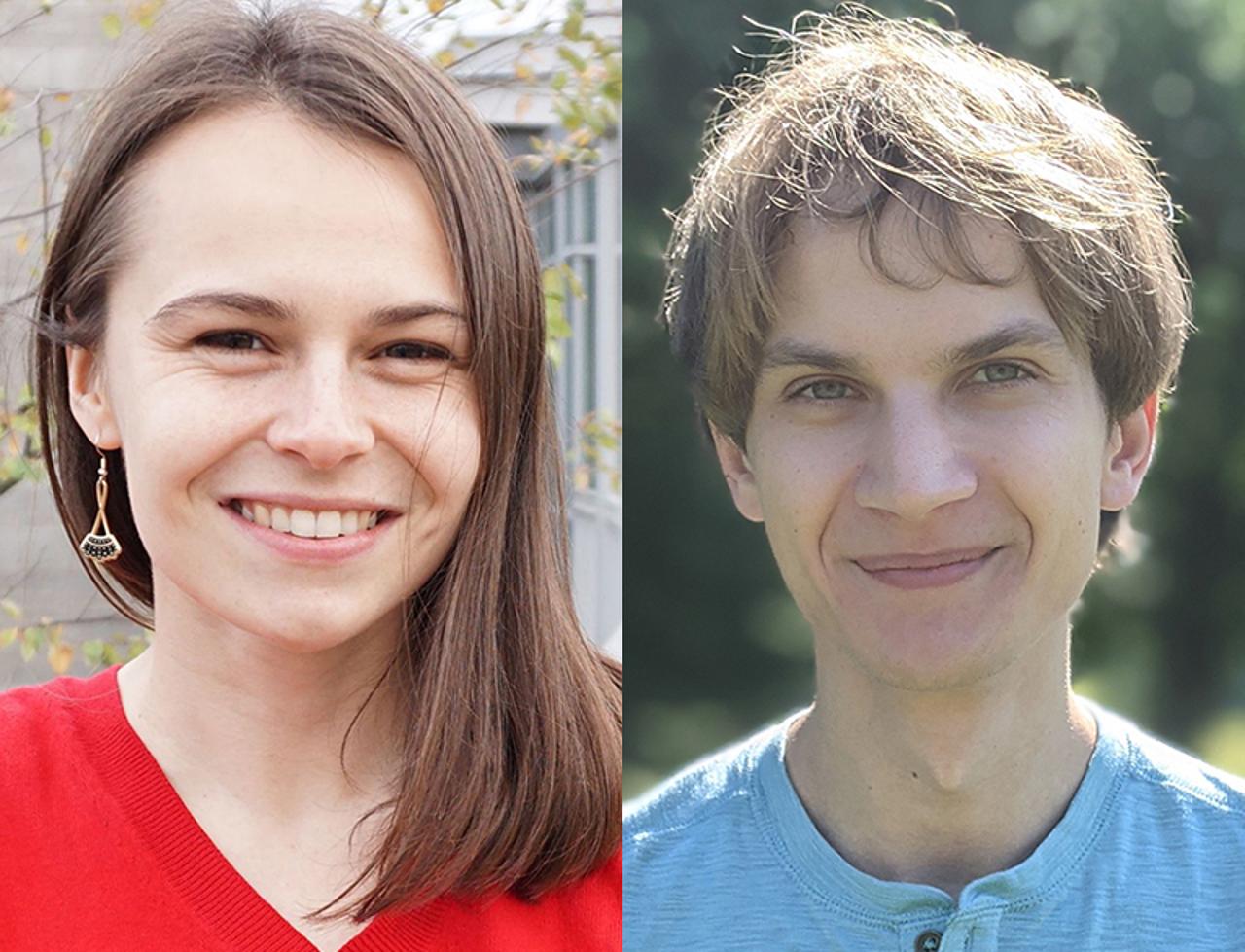CMU Computer Scientists Use Algorithm To Innovate Roots of Democracy
Aaron AupperleeThursday, August 5, 2021Print this page.

When 30 Michiganders convened last fall to draw up recommendations for tackling COVID-19, an algorithm developed in part by Carnegie Mellon University computer scientists helped bring them together.
The Citizens' Panel on COVID-19, organized in Michigan by the nonprofit of by for, is an example of a citizens' assembly — a political instrument with roots in ancient Greece that is experiencing a modern-day resurgence. One of the biggest challenges in organizing these assemblies, both in ancient times and today, is deciding who should serve. The assembly needs to be representative of the population as a whole, but the selection should be random, with all volunteers having an equal chance of being chosen.
Bailey Flanigan and Paul Gölz, both Ph.D. candidates in the Computer Science Department, were part of a team that developed an algorithm that maximized the randomness and the fairness of sortition, the process of choosing a citizens' assembly. Other researchers involved include Anupam Gupta, a professor in CSD; Ariel Procaccia, a professor of computer science at Harvard's School of Engineering and Applied Sciences and a former CMU professor; and Brett Hennig from the Sortition Foundation, a UK nonprofit organizing citizens' assemblies. The team used a version of their algorithm to help select the panel in Michigan and recently published their work on a similar algorithm in Nature.
"Sortition is one of the most exciting approaches to try to innovate democracy," Gölz said. "There is concern that democracy is backsliding. Dissatisfaction in government has risen. Polarization has risen. I truly think there are ways out of this if we do not take democracy as something that is set in stone and try to innovate on it."
Citizens' assemblies date back to ancient Athens, where public offices were filled by citizen volunteers selected by random lottery instead of elections. These volunteer assemblies drafted, debated and passed laws; made major foreign policy decisions; and controlled military budgets.
Citizens' assemblies are making a comeback. In 2019 and 2020, citizens' assemblies in France and the United Kingdom convened to draft measures to address climate change. Citizens' assemblies in Ireland have led to changes to the Irish constitution that legalized abortion and same-sex marriage. The panel in Michigan crafted 12 recommendations and offered them to local, state and national policymakers as a way out of the pandemic.
"I'm motivated by addressing inequities in people's experiences and, in particular, inequalities in people's access to political power," Flanigan said. "Something like sortition allows decisions to be made by people who are informed while also giving a more diverse group of people direct influence over political decisions."
Previous methods for selecting citizens' assemblies resulted in some participants having essentially no chance of being selected, raising questions about the fairness of the process. To address this, the team's algorithm generates hundreds or thousands of panels from the participants and selects one. The process gives each participant as equal a chance as possible of being selected.
"Ideally, a citizens' assembly acts as a microcosm of society," Procaccia said. "Whether this goal is realized in practice, however, depends on exactly how assembly members are chosen."
The open-source algorithm has already been used to select more than 40 citizens' assemblies by organizations in countries including Denmark, Germany, the U.S., Belgium and the UK. Going forward, the researchers will continue working with practitioners to learn from their experience about how these new selection algorithms can be made even more useful.
This work was supported by the Office of Naval Research.
Aaron Aupperlee | 412-268-9068 | aaupperlee@cmu.edu
